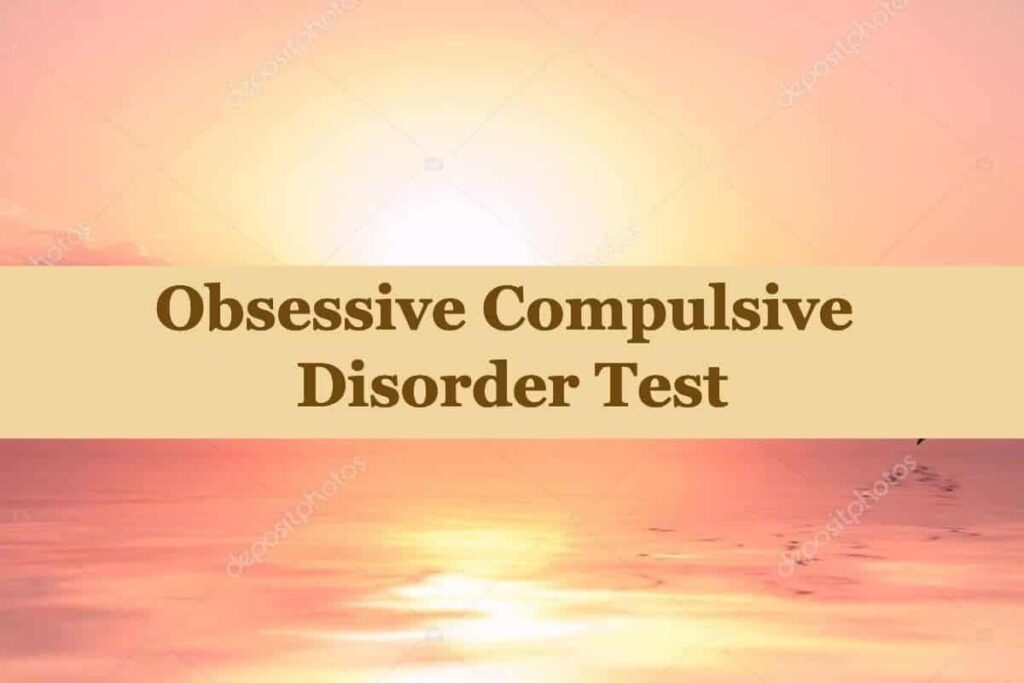Do you have a need for perfection? Are you excessively tidy? Do you have to follow rules and rituals? If so, you may be suffering from OCD. OCD, or obsessive-compulsive disorder, is a mental illness that affects millions of people all over the world. It can cause severe anxiety and depression and can make everyday life very difficult. If you think that you may have OCD, take this OCD Test to find out.
Contents
What Is OCD?
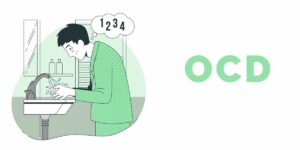 OCD is a mental disorder that is characterized by intrusive and recurrent thoughts, images, or impulses (obsessions) and repetitive behaviors or mental acts (compulsions).
OCD is a mental disorder that is characterized by intrusive and recurrent thoughts, images, or impulses (obsessions) and repetitive behaviors or mental acts (compulsions).
The obsessions and compulsions are time-consuming and cause significant distress or impairment in social, occupational, or other important areas of functioning. OCD can be classified into several subtypes: checking, washing/cleaning, ordering/arranging, hoarding, and counting.
Signs of OCD
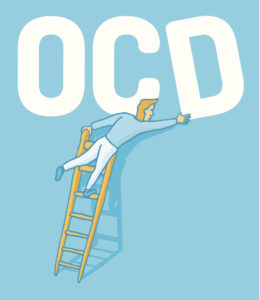
There are many signs of OCD, but some of the most common are compulsions (rituals or behaviors that a person does to try and relieve their anxiety) and obsessions (unwanted thoughts, images, or impulses). Compulsions can include things like constant hand-washing, checking things over and over again, counting objects, or ordering/arranging items in a specific way. Obsessions can be about anything from fears of germs or contamination to worries about making mistakes or harming someone.
Causes of OCD
There are many causes of OCD, but the cause is still unknown in many cases. Some possible causes include genetics, brain chemistry, and environmental factors.
These factors can interact in complex ways, making it difficult to determine exactly what causes OCD in any given person.
How Is OCD Diagnosed?
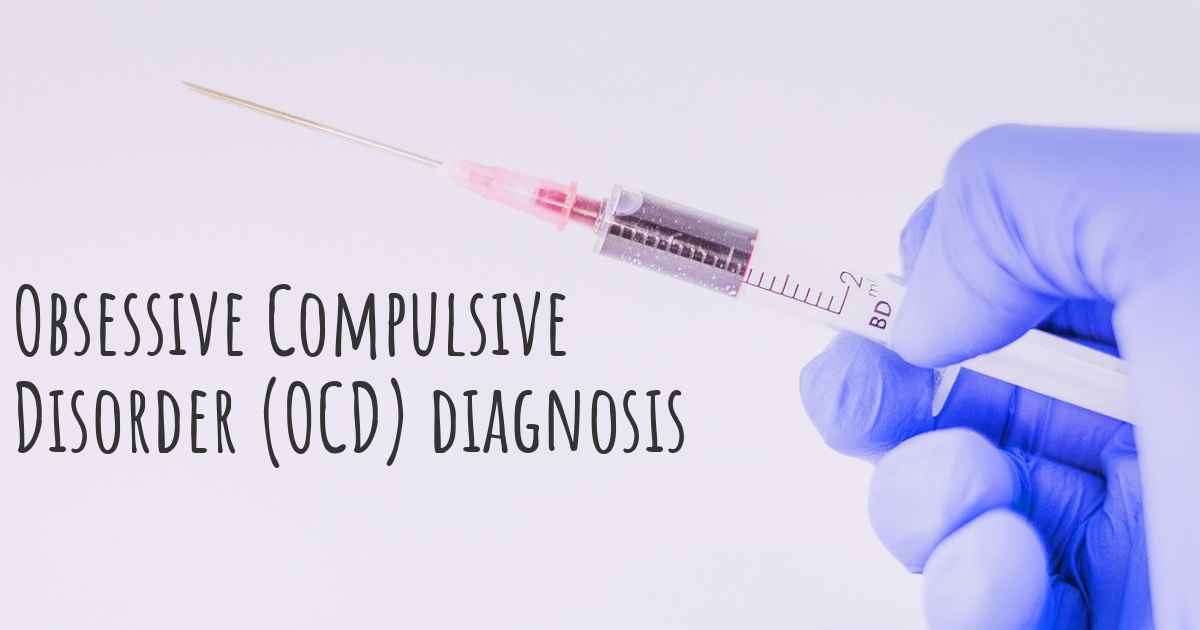
There are many ways to way to officially diagnose OCD. One is by meeting with a mental health professional who will ask you questions about your symptoms and how they’ve been impacting your life.
The second method is by completing a self-test like the one below. This can give you an idea of whether your symptoms meet the criteria for OCD, but it’s important to remember that only a mental health professional can diagnose OCD.
What Is OCD Test?
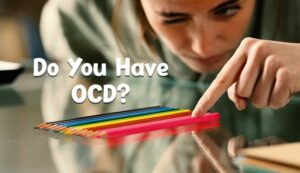 OCD Test is a tool used to help identify if someone might have OCD. The test is not meant to diagnose OCD but can be a helpful starting point for further discussion with a mental health professional.
OCD Test is a tool used to help identify if someone might have OCD. The test is not meant to diagnose OCD but can be a helpful starting point for further discussion with a mental health professional.
This test is also a great way to learn more about OCD and track your progress if you are working on overcoming OCD symptoms.
Sample OCD Test
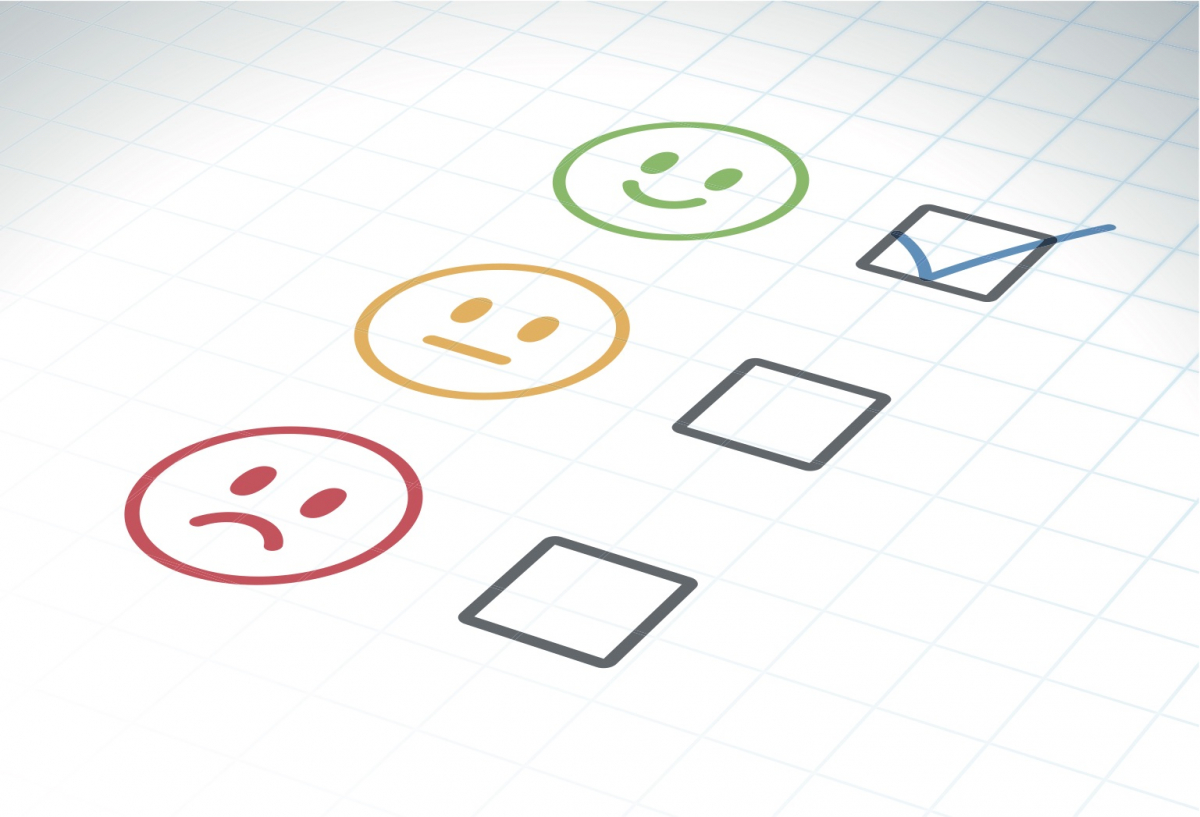
The OCD Test consists of 20 questions that ask about thoughts, feelings, and behaviors related to OCD. It takes about five minutes to complete.
These are the questions:
Do you have obsessive thoughts about things that don’t matter?
- Yes
- No
Do you feel the need to excessively clean or organize your belongings?
- Yes
- No
Have you been diagnosed with OCD by a mental health professional?
- Yes
- No
Do you avoid situations because they make you anxious?
- Yes
- No
Do you have compulsive rituals, like checking locks multiple times or going in a specific order?
- Yes
- No
Did a family member or friend suggest that you might have OCD?
- Yes
- No
Do these thoughts and behaviors interfere with your daily life?
- Yes
- No
Does your OCD cause you significant distress?
- Yes
- No
Do you think your symptoms might be related to OCD?
- Yes
- No
Have you ever felt like you were going crazy because of your OCD symptoms?
- Yes
- No
Do you feel like you need to do something to make obsessive thoughts go away?
- Yes
- No
Did your symptoms start after a traumatic event?
- Yes
- No
Do you feel like your OCD is getting worse?
- Yes
- No
Do you ever have thoughts that you might be better off dead?
- Yes
- No
If you answered yes to any of these questions, please discuss them with a mental health professional. Remember, it is important to seek help if you are feeling overwhelmed or suicidal.
Results of OCD Test
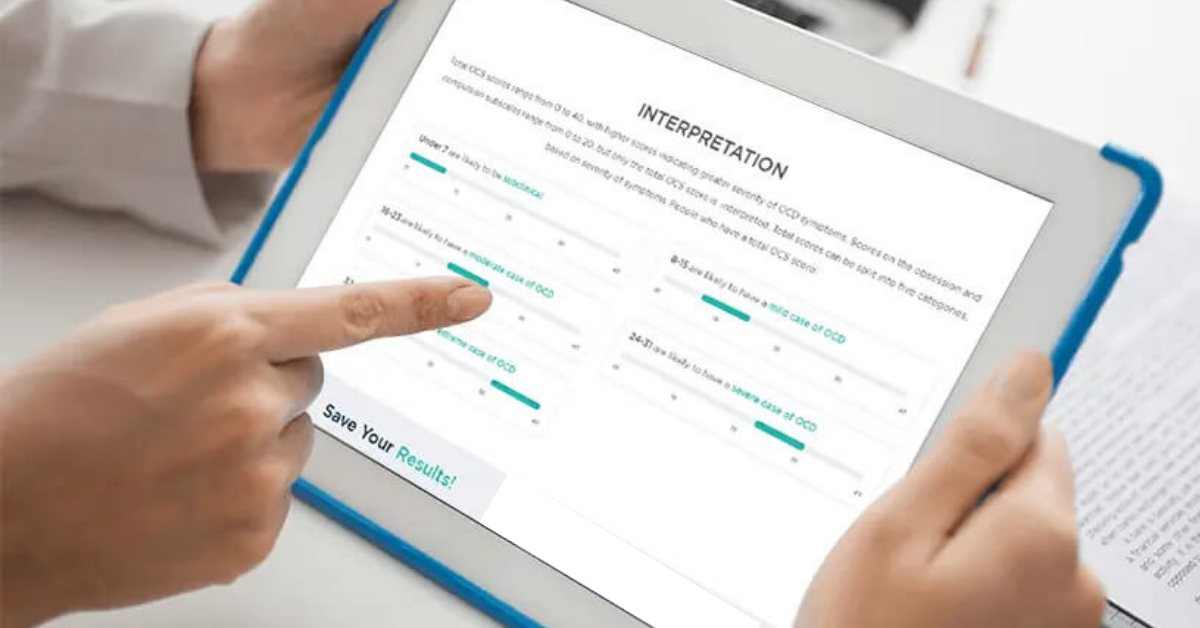
The results of the OCD Test also give you a score that can be used to track your progress. If your score is high, it might be helpful to seek professional help.
The OCD Test is not meant to diagnose OCD but can be a helpful starting point for further discussion with a mental health professional.
Mainly the results of this test serve as a way to monitor your progress if you are working on overcoming OCD symptoms. If the score is high, it might be helpful to seek professional help.
If you take this test and feel concerned about any of the questions or results, please discuss them with a mental health professional. Remember, it is important to seek help if you are feeling overwhelmed or suicidal. The OCD Test is not a replacement for professional diagnosis and treatment.
Is OCD Test Accurate?

The results of the OCD test can be a starting point to understanding if you have OCD. However, it is important to remember that only a professional can make a diagnosis. The OCD test should not be used as the final word on whether or not you have OCD.
The questions on the OCD test ask about your thoughts, feelings, and behaviors. They are designed to give an idea of how much your life is affected by Obsessive-Compulsive Disorder. It is important to answer these questions honestly in order to get the most accurate results possible.
If you do not have OCD, there is a good chance that your score will be low. If you do have OCD, your score may be higher. There is no right or wrong answer, and everyone’s experience with OCD is different.
The OCD test is not a diagnosis, but it can be a helpful tool in determining if you need to see a professional for help. If your score is high, it is important to seek out help from a mental health specialist.
Benefits of OCT Test
There are many benefits of OCT. Some of these benefits include:
Improves Mental Health
This OCD Test always helps in improving mental health as it helps people to identify their OCD symptoms and work on them.
Helps People Get Treatment
This OCD Test also helps people get proper treatment for Obsessive-Compulsive Disorder. If you are suffering from any type of OCD, then it is important to seek professional help. There are many treatments available that can help you overcome your disorder.
Improves Life Quality
When someone gets treated for OCD, they usually see a drastic improvement in their life quality. This is because they are no longer struggling with the symptoms of OCD and can live a normal life.
Makes Life Easier
When someone doesn’t have OCD, they often find life much easier. This is because they don’t have to worry about the symptoms of OCD and can just focus on their own life. This also makes it easier for them to maintain relationships and friendships.
Limitations of OCD Test
There are many limitations of OCD tests. Some of these are:
May Not Be Accurate For Everyone
These tests are not always accurate for everyone. This is because not everyone experiences OCD in the same way.
May Not Detect All Types of OCD
These tests may also not detect all types of OCD. For example, some people with OCD may only have cleanliness issues, while others may have intrusive thoughts that they can’t get rid of.
OCD Can Vary From Day To Day
People’s symptoms of OCD can also vary from day today. What might be a problem one day might not be an issue the next. It also depends on how much stress the person is under and what their triggers are.
Can’t Be Used As A Diagnostic Tool
These tests should not be used as a diagnostic tool to determine if someone has OCD. Only a professional can make a diagnosis of OCD after assessing someone’s symptoms. It also depends on how severe the person’s OCD is.
Despite these limitations, OCD tests can be a helpful way to determine if someone might have OCD. If you are concerned that you may have OCD, it is best to speak with a professional who can help diagnose you and provide treatment recommendations.
Treatment of OCD
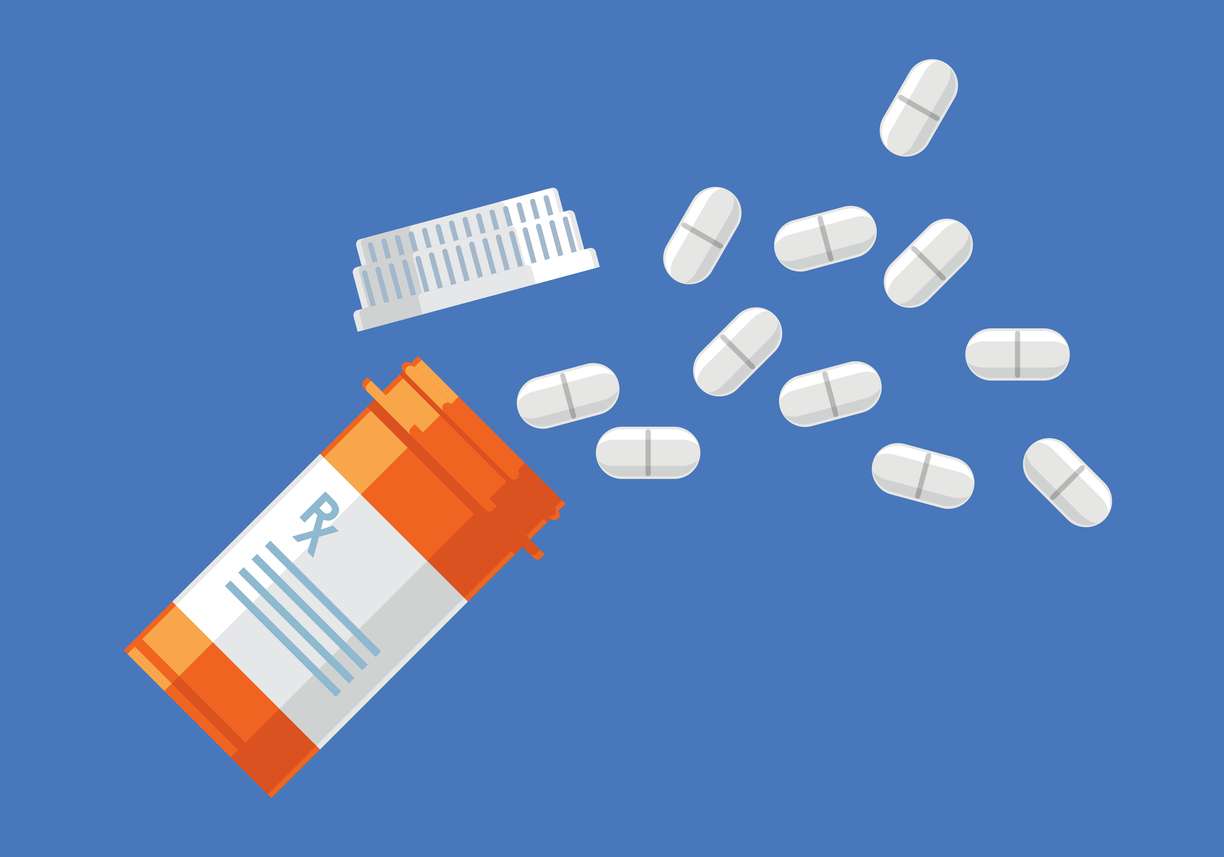
The treatment of OCD is usually with a combination of medication and cognitive-behavioral therapy (CBT).
Some people may only need medication while others may need CBT and medication.
There are different types of medications that can be used to treat OCD. The most common type of CBT for OCD is exposure and response prevention (ERP). ERP involves exposing yourself to the things that make you anxious and then not doing anything to try to stop the anxiety from happening. This helps you learn that you can tolerate the anxiety without doing anything about it.
There are also some other types of CBT that can be used to help treat OCD, such as mindfulness-based cognitive therapy (MBCT) or dialectical behavior therapy (DBT). MBCT helps you be more aware of your thoughts and how they can affect your mood. DBT helps you learn how to better control your emotions and reactions.
These treatment methods can be used on their own or in combination with each other.
There are many self-help books and websites that can help you learn more about OCD and how to treat it. It is important to find a treatment plan that works for you and that you are able to stick with.
These also include the use of a therapy dog.
If you want to manage OCD, it is important to be patient and stay with the treatment plan that works best for you. Sometimes it may take some time to find the right plan, but it is worth it in the end.
Conclusion
OCD is a disorder that affects people of all ages and genders. It can be very disabling and cause a great deal of distress. If you think you may have OCD, it is important to get help. There are many treatments available that can help you manage your symptoms. The diagnosis may be difficult to make, but there are tests that can help you find out if you have OCD.
There are many resources available to help those who suffer from OCD. There are also support groups available where you can meet others who understand what you are going through. Getting treatment for OCD is the best way to manage your symptoms and improve your quality of life. Remember, you are not alone. There is help available for you.
A Word From Therapy Mantra
Your mental health — Your psychological, emotional, and social well-being — has an impact on every aspect of your life. Positive mental health essentially allows you to effectively deal with life’s everyday challenges.
At TherapyMantra, we have a team of therapists who provide affordable online therapy to assist you with issues such as depression, anxiety, stress, workplace Issues, addiction, relationship, OCD, LGBTQ, and PTSD. You can book a free therapy or download our free Android or iOS app.
